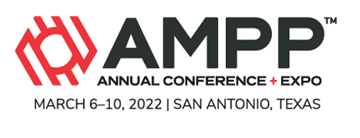Search
Products tagged with 'scribe'
View as
Sort by
Display
per page
Offshore Atmospheric Coating Performance Evaluation Test Standards - NACE Vs. ISO
Product Number:
51321-16902-SG
Publication Date:
2021
$20.00
Predicting the Enhanced Effects of Coating Deterioration in Marine Environments
Product Number:
51323-19341-SG
Publication Date:
2023
$20.00
Rust Creepage Mechanism for Offshore Atmospheric Coatings
Product Number:
51323-18754-SG
Publication Date:
2023
$20.00
Studying Impact on Variation of Scribe Method in Accelerated Corrosion Testing
Product Number:
51323-19351-SG
Publication Date:
2023
$20.00
Understanding Effect Of Scribe Method On Variability In Accelerated Corrosion Test Results
Product Number:
51322-17897-SG
Publication Date:
2022
$20.00





